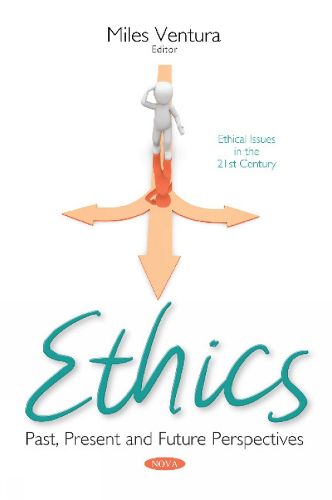Readings Newsletter
Become a Readings Member to make your shopping experience even easier.
Sign in or sign up for free!
You’re not far away from qualifying for FREE standard shipping within Australia
You’ve qualified for FREE standard shipping within Australia
The cart is loading…






In Ethics: Past, Present and Future Perspectives, the authors open by making a characterization of ethics viewed as a domain of philosophy. They present traditional approaches to ethics and point out the importance of general and special ethics in contemporary philosophical discourse. A conclusion is drawn that a clear need arises to discuss the so-called new ethics, one which is removed from the schematic thinking on good and evil. The following chapter discusses Nagels dualism and Murphys monism in depth. Both of them limit their discussions to distributive justice, but they admit that their views can apply to a more general discussion of the relationship between politics and morality. The authors suggest that supervenience is the key to solve this problem, using it as a standard to evaluate arguments from both sides, and then arguing that a supervenience relationship between politics and morality would be the third and better position than both dualism and monism. This collection examines ethics committes in hospitals, clinics, and other medical and research medical institutions within the public and private sector. An ethics committee is a group of individuals formed to protect the interests of patients and address moral issues within the health sector in many countries, consisting of different healthcare professionals and non-medical members. The following chapter discusses the convergence of technologies and scientific disciplines: singly, each of them has a large potential to change society and mankind, but combined they represent a more powerful source for even bigger changes. The increasingly widespread use of digital recording in administrative, commercial and social networks is opening up new and unpredictable scenario which might also influence the definition of disease in a digital society. The authors propose that by developing appropriate algorithms, it would be possible to identify subsets of the population at higher risk of developing diseases, to ascertain whether distances between homes and drugstores or hospitals influence peoples health profiles, to see whether the characteristics shared by Facebook friends influence their individual health profiles, and so on.
$9.00 standard shipping within Australia
FREE standard shipping within Australia for orders over $100.00
Express & International shipping calculated at checkout
In Ethics: Past, Present and Future Perspectives, the authors open by making a characterization of ethics viewed as a domain of philosophy. They present traditional approaches to ethics and point out the importance of general and special ethics in contemporary philosophical discourse. A conclusion is drawn that a clear need arises to discuss the so-called new ethics, one which is removed from the schematic thinking on good and evil. The following chapter discusses Nagels dualism and Murphys monism in depth. Both of them limit their discussions to distributive justice, but they admit that their views can apply to a more general discussion of the relationship between politics and morality. The authors suggest that supervenience is the key to solve this problem, using it as a standard to evaluate arguments from both sides, and then arguing that a supervenience relationship between politics and morality would be the third and better position than both dualism and monism. This collection examines ethics committes in hospitals, clinics, and other medical and research medical institutions within the public and private sector. An ethics committee is a group of individuals formed to protect the interests of patients and address moral issues within the health sector in many countries, consisting of different healthcare professionals and non-medical members. The following chapter discusses the convergence of technologies and scientific disciplines: singly, each of them has a large potential to change society and mankind, but combined they represent a more powerful source for even bigger changes. The increasingly widespread use of digital recording in administrative, commercial and social networks is opening up new and unpredictable scenario which might also influence the definition of disease in a digital society. The authors propose that by developing appropriate algorithms, it would be possible to identify subsets of the population at higher risk of developing diseases, to ascertain whether distances between homes and drugstores or hospitals influence peoples health profiles, to see whether the characteristics shared by Facebook friends influence their individual health profiles, and so on.